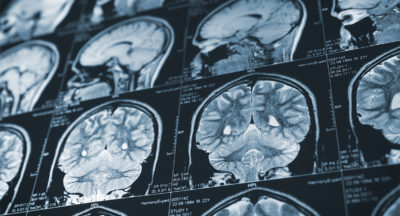
How Can I Improve My Sleep?
Sleep is not just a period of rest; it is a fundamental aspect of our overall health and well-being. Yet, many of us find ourselves tossing and turning, unable to drift into a peaceful slumber. The consequences of poor sleep can be profound, affecting our physical health, mental well-being, and overall quality of life. In this blog post, we will explore a myriad of strategies to improve your sleep and delve into the potential benefits of neurofeedback therapy in achieving restful nights.
The Importance of Quality Sleep
Before we delve into the strategies, let’s emphasize the critical importance of quality sleep. Sleep is when our bodies and minds repair, recharge, and reset for the day ahead. It plays a pivotal role in various aspects of our lives:
- Physical Health: Adequate sleep is essential for maintaining a healthy immune system, regulating hormones, and repairing tissues. It can help prevent chronic conditions such as obesity, diabetes, and heart disease.
- Mental Well-being: Sleep is closely linked to our emotional and mental health. It helps regulate mood and cognitive function, making us more resilient to stress, anxiety, and depression.
- Productivity and Creativity: A good night’s sleep enhances cognitive functions like problem-solving, creativity, and memory, which are vital for productivity in our daily lives.
- Energy and Alertness: Quality sleep ensures you wake up feeling refreshed and energized, ready to face the day with focus and alertness.
With these aspects of functioning in mind, let’s explore various strategies to help you improve sleep.
Establish a Consistent Sleep Schedule:
One of the most effective ways to improve sleep is to set a consistent sleep schedule. Go to bed and wake up at the same time every day, even on weekends. This helps regulate your body’s internal clock, making it easier to fall asleep and wake up naturally.
Create a Relaxing Bedtime Routine:
Engage in calming activities before bedtime, such as reading, gentle stretching, or taking a warm bath. Avoid stimulating activities like watching TV or using electronic devices that emit blue light, as they can interfere with your ability to fall asleep.
Optimize Your Sleep Environment:
Make your bedroom a sanctuary for sleep. Ensure your mattress and pillows are comfortable, and the room is dark, cool, and quiet. Consider using blackout curtains and white noise machines if necessary.
Limit Stimulants and Alcohol:
Reduce your consumption of caffeine and alcohol, especially in the hours leading up to bedtime. These substances can disrupt your sleep patterns and reduce sleep quality.
Mindful Eating:
Avoid heavy or spicy meals close to bedtime, as they can lead to discomfort and indigestion. Opt for a light, balanced snack if you’re hungry before bed.
Stay Active:
Regular physical activity can promote better sleep. Aim for at least 30 minutes of moderate exercise most days, but avoid intense workouts close to bedtime, as they can be stimulating.
Limit Naps:
While short power naps can be beneficial, long or irregular daytime naps can interfere with nighttime sleep. If you need to nap, keep it under 30 minutes and earlier in the day.
Manage Stress:
High levels of stress and anxiety can make it challenging to fall asleep. Practice relaxation techniques like deep breathing, meditation, or yoga to manage stress and calm your mind before bed.
Limit Screen Time:
The blue light emitted by screens can disrupt your circadian rhythm. Avoid screens for at least an hour before bedtime or use blue light-blocking glasses if you must use electronic devices.
Neurofeedback Therapy for Sleep Improvement:
Neurofeedback therapy, also known as EEG biofeedback, is a non-invasive technique that measures and provides real-time feedback on brain activity. It has gained popularity as a potential treatment for various mental health and neurological conditions, including sleep disorders. Here’s how neurofeedback therapy can benefit individuals struggling with sleep issues:
- Enhanced Self-Regulation: Neurofeedback helps individuals learn to regulate their brain activity. By providing real-time information about brainwave patterns, it empowers individuals to make conscious changes to promote relaxation and better sleep.
- Stress Reduction: Many sleep problems are linked to stress and anxiety. Neurofeedback can help individuals reduce stress by training their brains to produce calmer brainwave patterns, leading to improved sleep quality.
- Targeted Treatment: Neurofeedback therapy is highly customizable. It can target specific brainwave frequencies associated with sleep disturbances, such as excessive beta waves that indicate a racing mind, and help individuals shift into the more restful alpha and theta states.
- Reduced Reliance on Medication: For individuals relying on sleep medications, neurofeedback therapy offers a potential alternative or complementary approach. Over time, it may reduce the need for sleep medication.
- Long-Term Benefits: Neurofeedback therapy aims to produce lasting improvements in sleep quality. As individuals become more proficient at self-regulation, they can continue to apply these skills even after completing therapy.
- Personalized Approach: Each person’s brain is unique, and neurofeedback therapy tailors the treatment to individual brain patterns, making it a highly personalized approach to improving sleep.
While neurofeedback therapy shows promise for enhancing sleep quality, it’s essential to consult with a qualified healthcare professional, such as a licensed psychologist or neurofeedback therapist, to determine if it’s the right choice for your specific sleep issues. Improving your sleep is essential for your overall well-being, and there are many strategies you can implement to achieve restful nights. From establishing a consistent sleep schedule to creating a calming bedtime routine and optimizing your sleep environment, these practices can make a significant difference in your sleep quality.
In addition to these strategies, consider exploring the potential benefits of neurofeedback therapy if you have persistent sleep issues. Neurofeedback therapy offers a personalized, non-invasive approach to addressing sleep disturbances by training your brain to produce more conducive brainwave patterns for restful sleep. For more information on our neurofeedback programs at Cognitive Solutions L.C., please visit our Neurofeedback Services page.
Related Posts
HELPING CHILDREN AND ADULTS REACH THEIR FULL POTENTIAL.
We help individuals with Attention Deficit Disorder (ADD/ADHD), Learning...
Flying Under the Radar: How Unrecognized Traumatic Brain Injury Can Lead to Loss of Life
The time is now to discuss your health and here’s why. - In addition to...
What is Anxiety?
Is it Anxiety, a Phobia or just Life in Twenty-first Century? By Ari Goldstein,...
How Can You Prevent Adderall Withdrawal?
Withdrawal symptoms can occur when an individual stops taking Adderall, which can...





